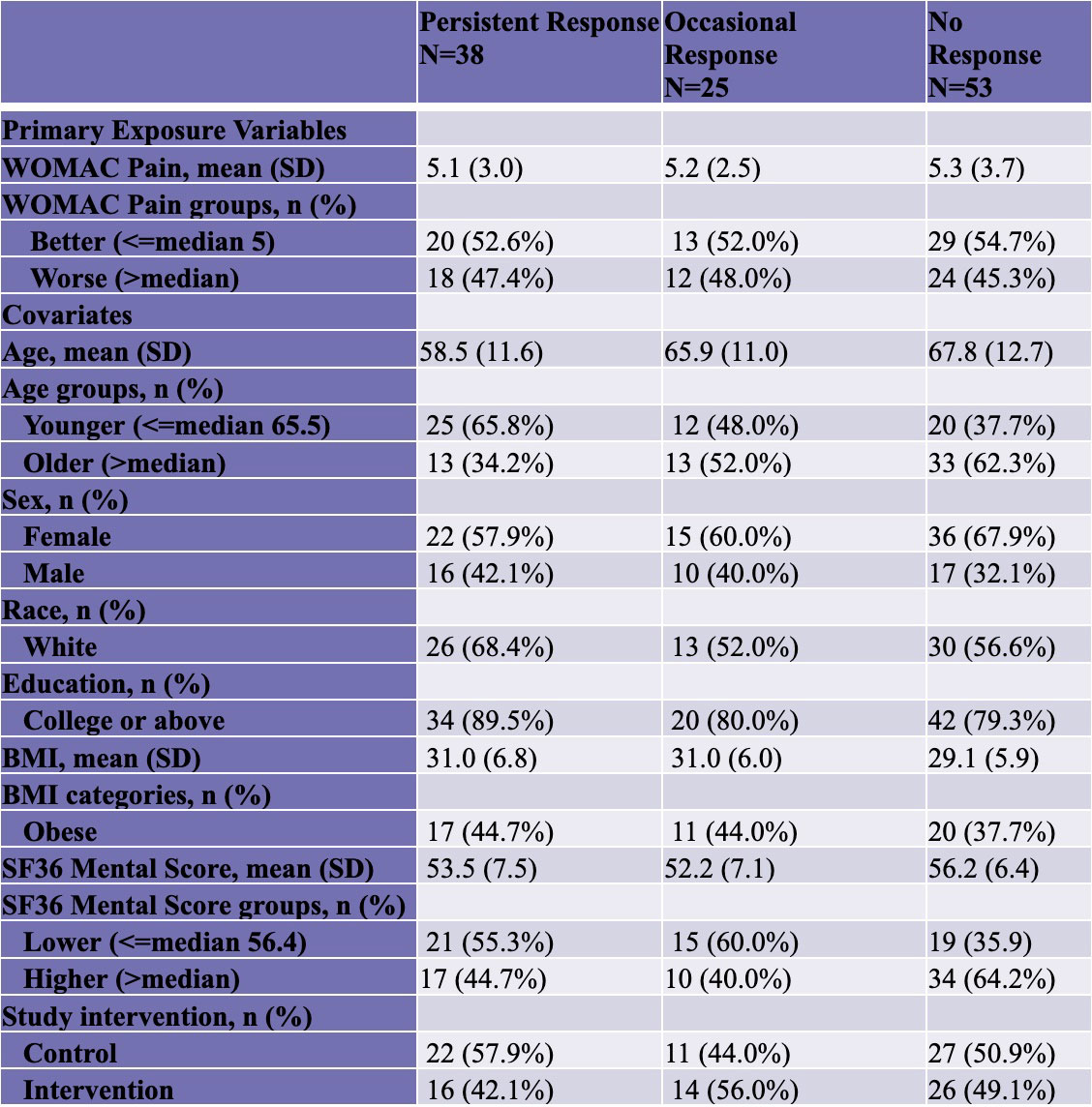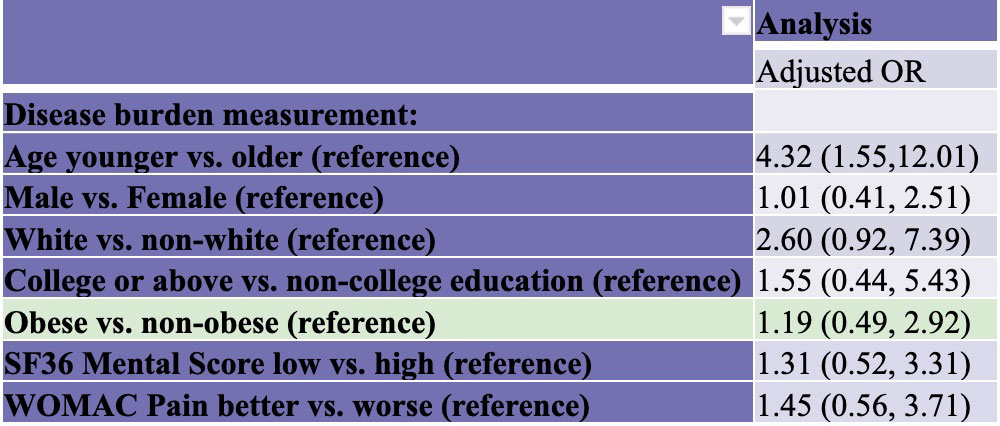Session Information
Session Type: Poster Session D
Session Time: 1:00PM-3:00PM
Background/Purpose: Knee osteoarthritis (KOA) is a chronic long-term condition that results in pain, disability and reduced quality of life. Over 13 million US adults 45 years and older have symptomatic KOA, more than 50% of whom have significant functional limitation. Increasing physical activity is an effective, but underutilized treatment for the symptoms and functional limitations associated with KOA. There is limited data on the impact of interventions to improve physical activity behavior of persons with KOA and identifying predictors for success. This study provides an opportunity to assess persons who have undergone interventions focused on physical activity behavior for KOA and to determine which factors would contribute to success in these persons. For purposes of this study, success is defined as increase in weekly objectively measured moderate to vigorous physical activity (MVPA) by 30 minutes shown in previous studies to be greater than the measurement error of accelerometer assessment of MVPA.
Methods: This was a nested case control study conducted using the Improving Motivation for Physical Activity in Arthritis Clinical Trial (IMPAACT) study dataset, examining baseline variables that predicted success at follow-up. Analysis was restricted to the 116 participants with KOA who had 2 or more follow-up visits.
We identified succeeders at each follow-up visit (3 months, 6 months, 1 year) as those who gained 30 or more minutes/week in moderate-to-vigorous physical activity (MVPA) over baseline. Persistent success was defined as an increased MVPA by at least 30 minutes over baseline at more than 50% of the follow-up assessments.
Baseline exposure variables assessed were age (less or greater than 65 years), sex, race and ethnicity, years of education, BMI, SF 36 mental health score (below or above median), WOMAC Pain (below or above median), and study intervention arm (motivational interviewing and physician advice vs physician advice alone).
Descriptive statistics were reported by outcome group (succeeders vs non-succeeders) for baseline demographics and clinical characteristics: frequencies (percentages) for categorical variables; mean (± standard deviation) for continuous variables; and median (interquartile range) for skewed or count variables.
Logistic regression models were fitted with persistent success of behavioral intervention as the outcome. Odds ratios and 95% confidence intervals were reported to summarize logistic regression findings.
Results: Younger persons with KOA have greater odds of improving their physical activity behavior via behavioral intervention than older persons. There are non-statistically significant trends indicating that persons with KOA who are white, longer educated, with better mental health and less knee pain have greater odds of responding to behavioral interventions to improve physical activity.
Conclusion: Physical activity behavioral interventions similar to those delivered in IMPAACT should target younger persons with KOA.
To cite this abstract in AMA style:
Jayaram L, song j, Semanik P, Pinto D, Ehrlich-Jones L, Muhammad L, Chang A, Chang R. Factors Affecting Success of Behavioral Interventions to Improve Physical Activity in Patients with Knee Osteoarthritis [abstract]. Arthritis Rheumatol. 2022; 74 (suppl 9). https://acrabstracts.org/abstract/factors-affecting-success-of-behavioral-interventions-to-improve-physical-activity-in-patients-with-knee-osteoarthritis/. Accessed .« Back to ACR Convergence 2022
ACR Meeting Abstracts - https://acrabstracts.org/abstract/factors-affecting-success-of-behavioral-interventions-to-improve-physical-activity-in-patients-with-knee-osteoarthritis/


